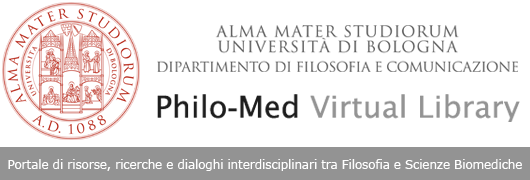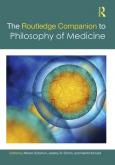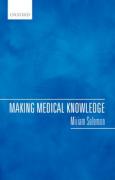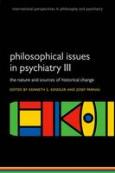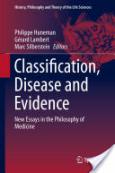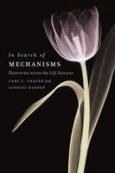Il Centro interuniversitario di ricerca Philosophy of Health and Disease PhilHeaD nasce dalla collaborazione tra; Università di Genova (sede del Centro) DAFIST, Università di Bologna (FILCOM, DIBINEM), Università di Ferrara (DIPMEDCHIR), Università di Milano-Bicocca (Psicologia, Formazione, Medicina), Università del Piemonte Orientale (DIGSPES...
Filosofia della medicina
"Too much medicine: Exploring the relevance of philosophy of medicine to medical research and practice" è il titolo del Convegno che si tiene dal 19 Aprile 2017 al 20 April 2017 al Kellogg College, Oxford e che vede la partecipazione di Raffaella Campaner del Dipartimento di Filosofia e Comunicazione dell l'Università di Bologna all'Organizing...
The Routledge Companion to Philosophy of Medicine is a comprehensive guide to topics in the fields of epistemology and metaphysics of medicine. It examines traditional topics such as the concept of disease, causality in medicine, the epistemology of the randomized controlled trial, the biopsychosocial model, explanation, clinical judgment and...
How is medical knowledge made? New methods for research and clinical care have reshaped the practices of medical knowledge production over the last forty years. Consensus conferences, evidence-based medicine, translational medicine, and narrative medicine are among the most prominent newmethods. Making Medical Knowledge explores their origins...
Since the 1970s, the origin of cancer is being explored from the point of view of the Somatic Mutation Theory (SMT), focusing on genetic mutations and clonal expansion of somatic cells. As cancer research expanded in several directions, the dominant focus on cells remained steady, but the classes of genes and the kinds of extra-genetic factors...
Sui rapporti tra filosofia e medicina è aperta da sempre un'articolata e vivace discussione, che solleva ancora oggi questioni di straordinaria importanza. Una delle principali riguarda i concetti di salute e malattia. Come pensarli e definirli? Si tratta di nozioni descrittive o normative? Quali relazioni e differenze presentano rispetto ad...
Psychiatry has long struggled with the nature of its diagnoses. The problems raised by questions about the nature of psychiatric illness are particularly fascinating because they sit at the intersection of philosophy, empirical psychiatric/psychological research, measurement theory, historical tradition and policy. In being the only medical...
This anthology of essays presents a sample of studies from recent philosophy of medicine addressing issues which attempt to answer very general (interdependent) questions: (a) what is a disease and what is health? (b) How do we (causally) explain diseases? (c) And how do we distinguish diseases, i.e. define classes of diseases and recognize...
Il Dipartimento di Filosofia e Comunicazione e il Collegio Superiore dell'Università di Bologna organizzano una serie di incontri dal titolo "Riflessioni sull’immagine scientifica: serie di incontri su osservazione, sperimentazione, teorie".
Negli ultimi decenni la filosofia della scienza è...
Neuroscientists investigate the mechanisms of spatial memory. Molecular biologists study the mechanisms of protein synthesis and the myriad mechanisms of gene regulation. Ecologists study nutrient cycling mechanisms and their devastating imbalances in estuaries such as the Chesapeake Bay. In fact, much of biology and its history involves...
